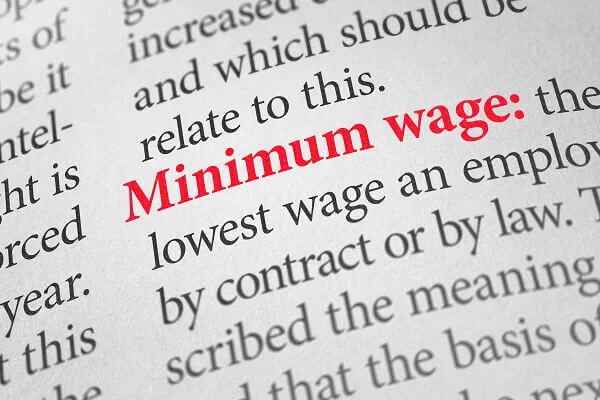attorneys assisting california business owners
Starting in January 2017, California increased its minimum wage, sending shockwaves through a number of industries. The plan calls for yearly increases in the minimum wage from 2017 through 2022 for employers with more than 25 employees. Employers with 25 or fewer employees get a one-year grace period, but must meet yearly minimum wage increases from 2018 through 2023.
Here’s what you need to know to be prepared for California’s minimum wage increases.
What increases are on the horizon:
Currently, the expected step increases start with an increase from $10.00 to $10.50 an hour in 2017 for employers with 26 or more employees and in 2018 for smaller employers. The following year, the increase is to $11.00. Each year after that, there’s a dollar per hour increase in the minimum wage, until a total of $15.00/hour is reached in 2022 for larger businesses and 2023 for smaller ones.
What happens after the $15.00 per hour limit is reached?
After the $15.00/hour minimum is attained, the minimum wage will be adjusted each year based on inflation, using the national consumer price index for urban wage earners and clerical workers (CPI-W). If the CPI-W is negative in any given year, the minimum wage will stay the same. The minimum wage will not be raised more than 3.5 percent in any one year, even if the CPI-W is higher.
Does this new rule override local (city or county) minimum wage rules?
California cities and counties are allowed to have a higher minimum wage for employees within their jurisdictions. For instance, several California cities currently have “tiered” minimum wage requirements, based on the number of people a business employs. All California businesses are required to pay the highest minimum wage that applies to their business, whether it is imposed by a federal, state, or local rule.
Are any businesses exempt from the new rules?
Certain employees are exempt from the new minimum wage rules. These include outside salespersons, employees who are the parent, spouse, or child of the employer, and apprentices who are subject to the State Division of Apprenticeship Standards.
Making the right business decisions requires careful planning and forethought, but it does not require you to work alone. By connecting with the experienced California lawyers at CKB VIENNA LLP, you gain the assistance of a knowledgeable legal team that can provide insight and direction in the face of business challenges. To learn more, contact us today via our online form or by calling 909.980.1040.

